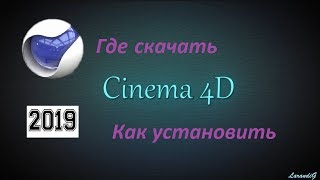Saturday, 17 January, 2026г.
















Где искать: по сайтам Запорожской области, статьи, видео ролики
пример: покупка автомобиля в Запорожье
What is EVENT CINEMA? What does EVENT CINEMA mean? EVENT CINEMA meaning & explanation
✪✪✪✪✪ http://www.theaudiopedia.com ✪✪✪✪✪
What is EVENT CINEMA? What does EVENT CINEMA mean? EVENT CINEMA meaning - EVENT CINEMA definition - EVENT CINEMA explanation.
Source: Wikipedia.org article, adapted under https://creativecommons.org/licenses/by-sa/3.0/ license.
Event cinema sometimes called alternative content cinema or Livecasts refers to the use of cinema theaters to display a varied range of live and recorded entertainment excluding traditional films, such as sport, opera, musicals, ballet, music, one-off TV specials, current affairs, comedy and religious services.
Event Cinema was set up at the start of the century with rock concerts by Bon Jovi (2001), David Bowie (2003), and Robbie Williams (2005) bringing non-film audiences into cinemas that had newly installed digital equipment. The Metropolitan Opera in New York through their partnership with Fathom Events is acknowledged as the trailblazer in this area, aggressively seeking out new markets and setting high standards for live broadcasts via satellite. Emulated by other opera houses worldwide such as the Royal Opera House following a close second, Glyndebourne, La Scala and the Sydney Opera House the genre of opera within the 'Event Cinema' industry has been a huge success, and has brought new, younger audiences into cash-strapped opera houses depended on state funding and wealthy benefactors for the first time - an unforeseen and happy consequence of digitisation.
Ballet and theater have also been very successful, as have rock concerts, both live and recorded. The UK's National Theatre has been a huge success here with their season of live broadcasts under the banner 'NT Live', featuring big name casts such as Helen Mirren, whose recent turn as Queen Elizabeth II in The Audience was a sell out everywhere. (This was in partnership with another West End theatre and the NT are keen to help other theatres maximise their potential through live broadcasts). The Globe and the Royal Shakespeare Company are also producing work for live broadcast and recorded exhibition. As digitisation of cinemas matures, the Event Cinema industry is growing. The strongest territory is the US, followed by the UK and mainland European territories. Latin America is also a very strong market.
Recent additions include Pompeii Live, a unique exhibition by the UK's British Museum, featuring celebrities and curators taking the audience on a live tour around the recreated set of Pompeii within the museum itself, and they are also exploring the schools market for the first time, following the live broadcast on June 18 with a daytime broadcast aimed at UK schools for the first time. If successful this will no doubt prove a model for future museums to emulate. Art galleries have already produced tours along these lines with the Royal Academy and the National Gallery both producing excellent tours along similar lines.
An added incentive for exhibitors is the ability to show alternative content, i.e. alternative to mainstream, studio-driven content, such as live special events, sports, pre-show advertising and other digital or video content. In industry terms this has become known as 'Alternative Content', but has recently become known more widely as 'Event Cinema'.
Some low-budget films that would normally not have a theatrical release because of distribution costs might be shown in smaller engagements than the typical large release studio pictures. The cost of duplicating a digital "print" is very low, so adding more theaters to a release has a small additional cost to the distributor. Movies that start with a small release could scale to a much larger release quickly if they were sufficiently successful, opening up the possibility that smaller movies could achieve box office success previously out of their reach.
Event Cinema is also finding a market in 3rd world countries in which the higher costs and quality of DCI equipment are not yet affordable, as crucially there are no DCI specifications for Alternative Content as there is in mainstream content. This has led to an explosion in the variety of content on offer, but lack of standardisation has led to questionable quality at times. As the industry matures, this lack of regulation is expected to change and there are moves afoot to introduce codes of practice and technical specifications.
Теги:
dictionary english dictionary online dictionary vocabulary english vocabulary online vocabulary how to pronounce words what do words mean event cinema what is event cinema event cinema meaning event cinema definition event cinema explanation what is the meaning of event cinema what is the definition of event cinema what does event cinema mean what does event cinema stand for
Похожие видео
Мой аккаунт


 У вашего броузера проблема в совместимости с HTML5
У вашего броузера проблема в совместимости с HTML5


